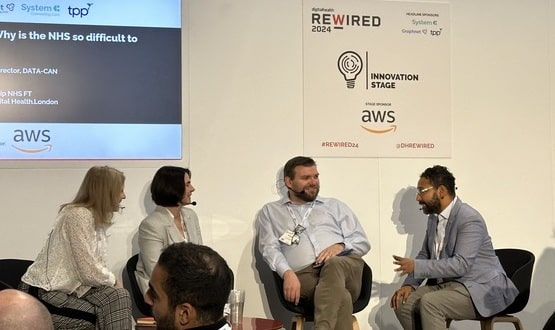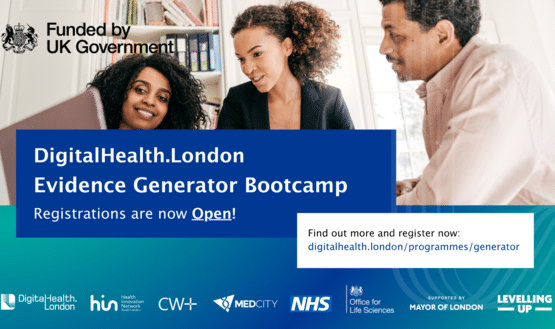DigitalHealth.London launches new evidence data bootcamp
- 13 September 2022

DigitalHealth.London has opened applications for its newest bootcamp which helps digital health companies to navigate the complexities of generating evidence data.
The eight-week programme is designed to help companies pinpoint their evidence needs and gain expert help to support them to generate effective, relevant evidence.
In order to successfully launch a digital health product to the NHS, it’s vital that companies are able to secure quality evidence demonstrating how their product is suited to the needs of the UK health system and its patients. The Evidence Generation Bootcamp aims to tackle this challenge with a series of educational workshops, webinars and pitching sessions.
Delivered remotely, the bootcamp will help companies decide their priorities and plan their evidence generation journey accordingly. The programme will cost £7,500 and London-based small- and medium-sized companies may be eligible for fully-funded places, thanks to part-funding by the European Regional Development Fund, through the Greater London Authority, and DigitalHealth.London’s partners.
Companies committed to driving their evidence generation forward will benefit from peer support opportunities, practical exercises and brokering of collaborative relationships, alongside expert advice.
Paul Wallace, academic lead for DigitalHealth.London Evidence Generation Bootcamp, said: “DigitalHealth.London is at the forefront of evidence generation with more than five years of experience, key expertise and extensive networks. Evidence generation continues to be one of the biggest challenges facing digital health companies and we are therefore running this new, stand-alone Evidence Generation Bootcamp to reduce the barriers for companies to generate effective evidence.”
The bootcamp is for digital health companies planning to launch, or who already have, a product in the UK market. It is open to both UK and international companies. Applicants to the programme will be assessed based on their commitment to the programme, the potential benefits to them of the programme and their potential to provide solutions to pressing NHS problems.
Ruth Bradbury, interim head of DigitalHealth.London, said: “Our Driving Digital report published last year highlighted the importance of determining how and what to evaluate in digital health to enable further adoption.
“We also know through supporting companies on our Accelerator and Launchpad programmes on their evidence generation journey that it can be hard for them to know when to start.
“At DigitalHealth.London, we believe it is important for us to pivot in the same, agile way as the companies we support, which is why we are launching the new Evidence Generation Bootcamp programme, to offer our expert experience in evidence generation to even more digital health companies working at the forefront of healthcare innovation.”
DigitalHealth.London opened applications for its Launchpad programme at the start of this year – aimed at companies who are in the early stages of developing their product or service.




